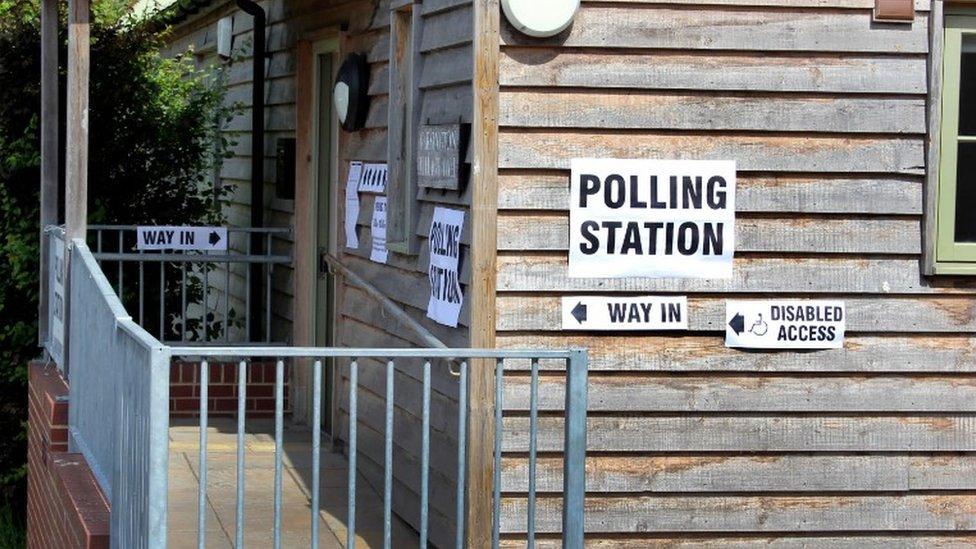What access can you expect at the polling station?
- Published

It may not have escaped your notice that it's polling day and you might have plans to venture out and cast your vote.
But what kind of accessibility can you expect when you arrive, to fill in the ballot paper and cast your vote?
According to the Electoral Commission, each polling station should:
Provide clear signage to the main entrance and an accessible entrance, if they are separate
If the Returning Officer provided information about the election in Braille or pictorial formats, these should be displayed, as should a large-print version of the ballot paper
Pace the ballot box on a chair, rather than a table, so everyone can reach it
Provide a low-level polling booth
Place a white strip around the slot of the ballot box to highlight its opening
Provide a tactile voting device (TVD) to enable someone who is visually impaired to mark the ballot paper themselves once details on the ballot paper have been read out
Provide chairs for anyone who needs a rest
If you have a vague recollection about a recent High Court ruling making the use of the aforementioned tactile voting templates (TVD) "unlawful", you haven't been imagining things.
TVD's are plastic sheets that fit over ballot papers and guide visually impaired constituents where to put the cross - but it doesn't provide information about candidates so someone has to read that information out. Some people have reported the device isn't always placed over the ballot paper accurately so they have to check with someone they've put the cross in the right place, making the process less than secret.
Mr Justice Swift made the ruling earlier this month but did not remove the legal requirement for TVD's to be provided at elections.
Their use is prescribed in law so the UK Government will now have to consider how it moves forward.